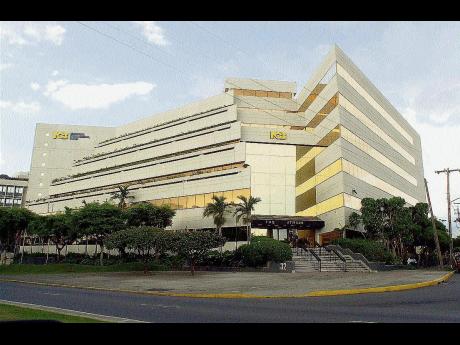Lake loses J$29b fight with NCB - But awarded J$5m for 20-year wait for property titles
McPherse Thompson, Assistant Editor - Business
Richard Lake has lost a J$29-billion lawsuit against National Commercial Bank Jamaica (NCB), relating to a hotel development taken over by the bank two decades ago for unpaid debts.
The property, known as Rio Blanco Village Hotel, was subsequently sold to Lake in May 1993, but the businessman is contending that the receiver hired by the bank failed to fulfil conditions of the agreement.
The deal for the 27-acre development was worth about J$64 million, according to decade-old press reports.
Lake, through three of his companies, sued NCB as well as Rio Blanco Development Company and the receiver put in charge of the development, Karl Aird, for breach of contract and resulting losses - citing failure to deliver duplicate titles for four lots acquired at White River, St Mary.
The suit was filed in 2005 through associated companies Caricom Investments, Caricom Hotels and Caricom Properties, all controlled by Lake and which had shareholders and directors in common.
The judgement quotes the value of the lawsuit at over J$29 billion, but with mounting interest charges the figure had risen above J$31 billion (see graphic). The case was decided by Justice Roy Anderson on September 20, 2013.
Aird was appointed receiver-manager by NCB in October 1992 under a debenture over the assets of Rio Blanco and as mortgagee of properties registered in the name of the development company, according to the judgment recently handed down by the Supreme Court.
Property sold in 1993
In May 1993, Aird, in his capacity as receiver-manager, executed two agreements with Caricom Investments - one for sale of land involving 53 titles, and the second for chattels and property.
A condition of the sale of the land was that the vendor, Rio Blanco, would apply for the relevant certificates of title immediately after registration of the ownership.
The claimants contended that the titles for four lots were not delivered, and that this, in turn, served as an encumbrance to the other 49 certificates of title. As a result, the contract was not concluded, the claimants contended.
Justice Roy Anderson rejected the argument, however, saying the difficulties with the duplicate certificates of title did not preclude the production of the other 49.
But the judge also held that it should not take as long as 20 years to produce property titles.
"I would accordingly hold that there has been a breach of an implied term that the purchaser would be provided with duplicate certificates and within a reasonable time," Anderson said.
That obligation is clearly that of the vendor, Rio Blanco through Aird, who had the responsibility for the affairs of NCB, the judge said.
On that basis, Justice Anderson awarded the claimant companies damages of J$5 million with interest against Rio Blanco, as well as five per cent of their costs, given the limited success of their claims.
He said the award was intended to compensate the claimant for the cost of bringing the action and to force the delivery of the titles, by way of a court order if necessary.
However, in respect of the other claims, Justice Anderson handed down judgment in favour of NCB, Rio Blanco and Aird, and awarded them 95 per cent of their costs.
The Caricom companies had claimed damages for operational losses, interest on operating losses, capital expenditure on the hotel property, interest on capital expenditure, opportunity losses associated with their inability to use the titles, and losses incurred in being unable to implement a timeshare development as planned.
But Anderson held that "the failure to provide theduplicate certificates of title does not amount to a repudiatory breach as it did not go to the root of the contract. The purchaser has, in fact, got what he bargained for."
Lake was the main witness for the Caricom companies, but the judge characterised his evidence as "at best, uneven and not reliable".
He said the experts who gave evidence were also of little help.
"It is difficult to give any credence to the experts' reports when they seemed not to have been provided with the basic data upon which to base their expert opinions," the judge said.
He added that the lack of any audited, or at least credible, financial statements for the Caricom companies for the period 1993 to 2010 must be fatal to a claim in excess of J$29 billion, covering damages spanning a period of 18 years.
"I hold that these expert reports do not assist me in what I have to decide," the judge said.
Lawyers for the Caricom companies argued, among other things, that the claimants should be compensated for an inability to fully utilise the property as an investment, resulting in millions of dollars of losses.
Justice Anderson said "there is no evidence that the defendants were aware of any plans to develop a timeshare at the time the contract was made, and as economic loss, it could only arise if they did."
The Caricom companies were represented by attorneys Richard Small, Denise Kitson, Suzanne Risden-Foster and Sherise Gayle, while Charles Piper, Carlene Larmond and Marsha Locke appeared for NCB, Rio Blanco and Aird.
Lake's lawyers were not reached to ascertain whether an appeal would be filed.
mcpherse.thompson@gleanerjm.com

